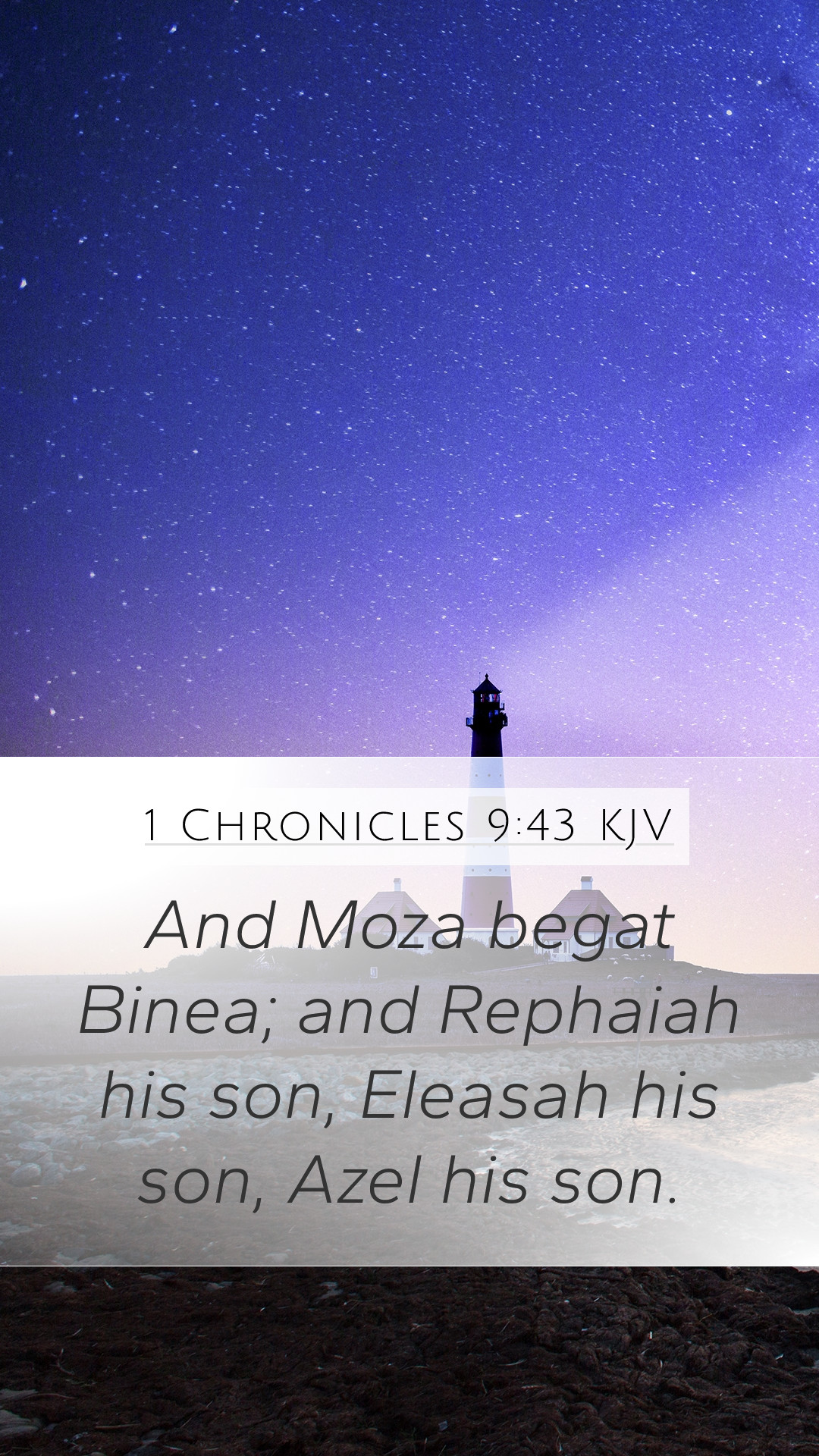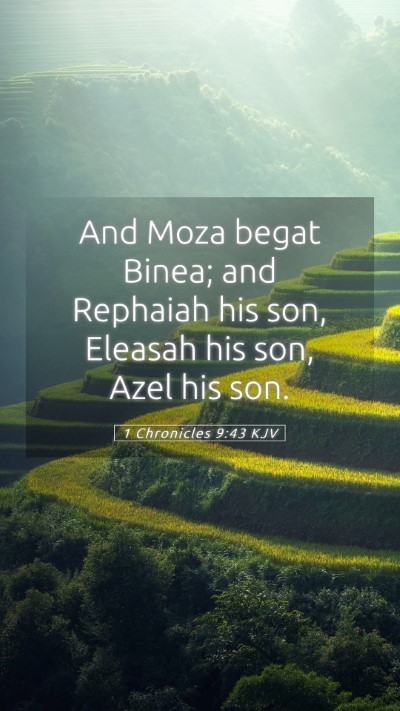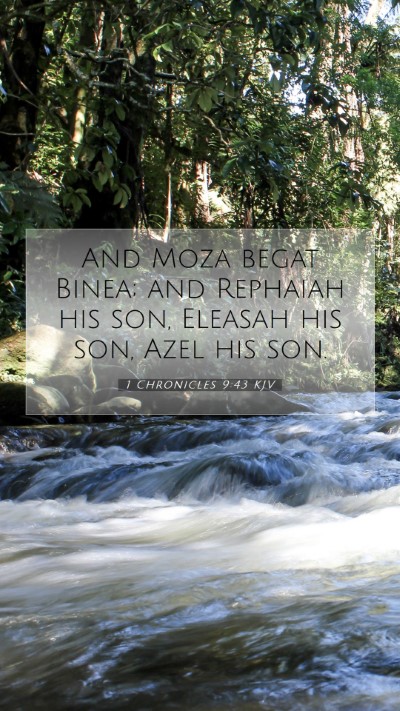Old Testament
Genesis Exodus Leviticus Numbers Deuteronomy Joshua Judges Ruth 1 Samuel 2 Samuel 1 Kings 2 Kings 1 Chronicles 2 Chronicles Ezra Nehemiah Esther Job Psalms Proverbs Ecclesiastes Song of Solomon Isaiah Jeremiah Lamentations Ezekiel Daniel Hosea Joel Amos Obadiah Jonah Micah Nahum Habakkuk Zephaniah Haggai Zechariah MalachiChapter
1 Chronicles 1 1 Chronicles 2 1 Chronicles 3 1 Chronicles 4 1 Chronicles 5 1 Chronicles 6 1 Chronicles 7 1 Chronicles 8 1 Chronicles 9 1 Chronicles 10 1 Chronicles 11 1 Chronicles 12 1 Chronicles 13 1 Chronicles 14 1 Chronicles 15 1 Chronicles 16 1 Chronicles 17 1 Chronicles 18 1 Chronicles 19 1 Chronicles 20 1 Chronicles 21 1 Chronicles 22 1 Chronicles 23 1 Chronicles 24 1 Chronicles 25 1 Chronicles 26 1 Chronicles 27 1 Chronicles 28 1 Chronicles 29Verse
1 Chronicles 9:1 1 Chronicles 9:2 1 Chronicles 9:3 1 Chronicles 9:4 1 Chronicles 9:5 1 Chronicles 9:6 1 Chronicles 9:7 1 Chronicles 9:8 1 Chronicles 9:9 1 Chronicles 9:10 1 Chronicles 9:11 1 Chronicles 9:12 1 Chronicles 9:13 1 Chronicles 9:14 1 Chronicles 9:15 1 Chronicles 9:16 1 Chronicles 9:17 1 Chronicles 9:18 1 Chronicles 9:19 1 Chronicles 9:20 1 Chronicles 9:21 1 Chronicles 9:22 1 Chronicles 9:23 1 Chronicles 9:24 1 Chronicles 9:25 1 Chronicles 9:26 1 Chronicles 9:27 1 Chronicles 9:28 1 Chronicles 9:29 1 Chronicles 9:30 1 Chronicles 9:31 1 Chronicles 9:32 1 Chronicles 9:33 1 Chronicles 9:34 1 Chronicles 9:35 1 Chronicles 9:36 1 Chronicles 9:37 1 Chronicles 9:38 1 Chronicles 9:39 1 Chronicles 9:40 1 Chronicles 9:41 1 Chronicles 9:42 1 Chronicles 9:43 1 Chronicles 9:44

